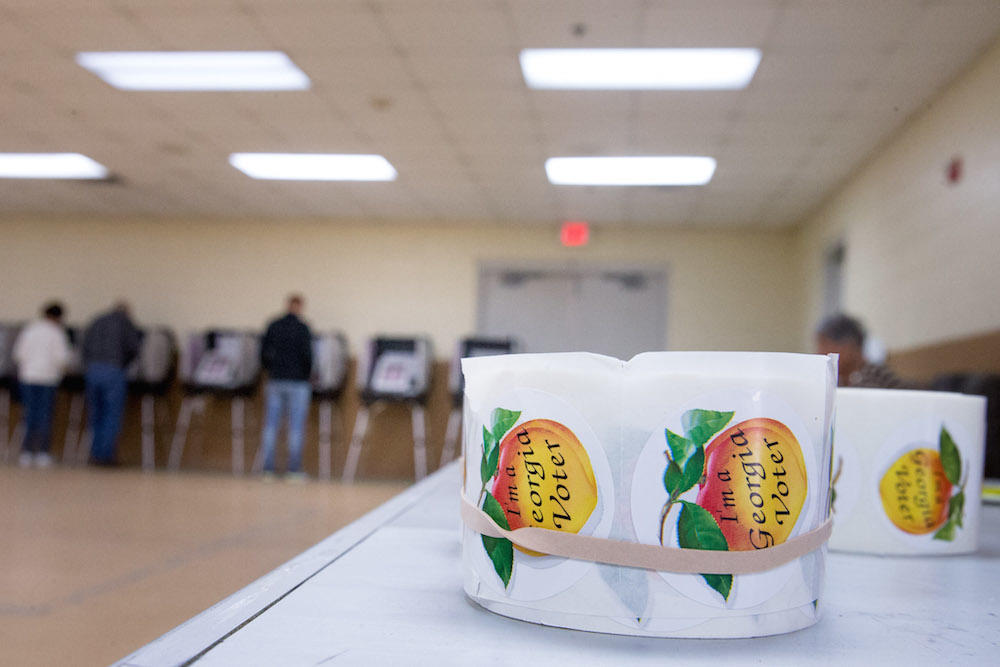Section Branding
Header Content
Georgia Elections Board Allows Absentee Ballot Drop Boxes For June 9 Primary
Primary Content
The Georgia State Election Board passed an emergency rule Wednesday allowing county officials to set up secure drop boxes for voters to return their absentee ballots as local administrators grapple with running an election during a global health crisis.
This could give some of Georgia's 7 million-plus eligible voters another way to return their ballots for the June 9 primary election only, as counties begin to close polling places because of staff shortages and try to implement social distancing at the polls.
County registrars are now authorized to set up one or more secure locations on government-owned property where voters can drop their completed absentee ballot any time before the polls close at 7 p.m. on Election Day.
Republican Secretary of State Brad Raffensperger, chair of the SEB, is encouraging voters to use mail-in absentee ballots and avoid in-person voting unless absolutely necessary, telling GPB News that he plans to vote absentee for the upcoming election himself.
The state is mailing out absentee ballot application forms to 6.9 million active voters and is expecting a higher percentage of people to vote absentee. In 2018, only 7% of votes cast used that method.
Ryan Germany, general counsel for the secretary of state’s office said that much of the rule’s language is taken from Colorado, where some municipalities allow voters to drop off their ballots at 24-hour locations.
The emergency rule reflects a new reality for elections in Georgia under the threat of coronavirus.
A GPB News/Georgia News Lab survey of more than half the state’s 159 elections directors found wide-ranging concerns about running the upcoming primary, from losing poll workers to managing long, spread out lines to processing the influx of absentee ballots in places that predominantly vote in person.
Saira Draper, voter protection director of the Democratic Party of Georgia, said during the public comment portion of the telephone meeting that she was pleased with the expanded opportunity for people to vote, but also said the state needs to do more.
“Given that the state is not providing postage for ballots, the uncertainties about the future of the USPS and then in person interactions or a health risk, offering limited contact options to voters is prudent,” she said. “That said, for the rollout of drop boxes to be effective, there are certain minimum standards that must be met.”
Draper said the state must pay for the boxes to avoid putting a greater burden on already-overwhelmed county officials, the boxes should be put in place ahead of the three-week early voting period and be accessible 24/7 and not behind closed doors.
In the meeting, the secretary of state’s office said they were exploring the use of federal funding or grants to help counties set up these systems.
While the text of the rule was not immediately available, the secretary of state’s office said that local leaders would have to meet strict security requirements to store and count ballots.
The board also approved several amended rules dealing with provisional ballots, the definition of a vote under the state’s $104 million touchscreen ballot-marking device system and prompt notification if someone’s absentee ballot is rejected.


